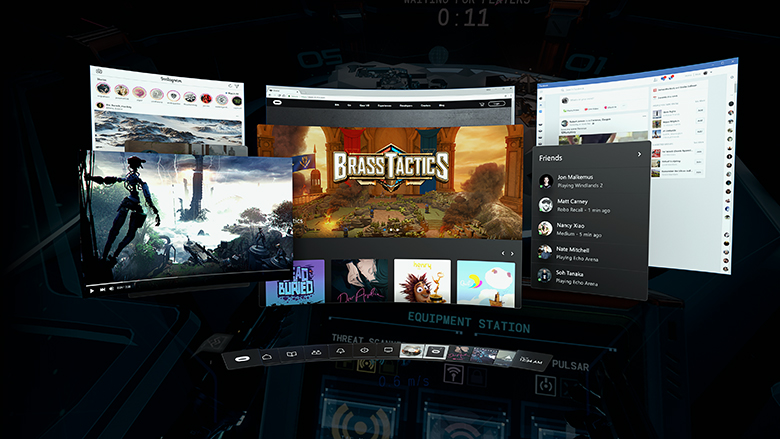Oculus (Finally) Rolls Out Rift Core 2.0 to All
Oculus announced Rift Core 2.0 at the Oculus Connect 4 conference in October 2017. At the time, it was said the update was supposed to make significant changes to Rift by introducing features like Dash, reworking existing aspects of the software, like Oculus Home, and making improvements to the user experience. Now, one year after the update's announcement, the company this week finally released the overhauled software to all Rift owners.
A beta version of Rift Core 2.0 has been available since December 2017. Oculus also shared more information about the updated software at Oculus Connect 5 in September alongside the new Oculus Quest standalone VR headset, additional entertainment platforms for Oculus Go and new games made specifically for its platforms.
Rift Core 2.0 includes significant changes to the Rift user experience. Dash makes it easier to access PC software in the Oculus Rift headset. Oculus has big plans for this functionality--it revealed new "Hybrid Apps" at Oculus Connect 5 to help devs "build applications that transition more seamlessly between 2D and VR"--but right now it's pretty much what you'd expect. Dash also offers a new interface that can be summoned at any time.
Meanwhile, the update to Oculus Home took it from being a basic store to becoming a "customizable social space you can share with friends." The customization arrives in the form of letting Rift users import assets to "decorate" their home, while the social aspect revolves around the ability to virtually hang out with up to eight friends (can you tell Facebook is anxious to convince investors that VR really is the next big social trend?).
Oculus isn't done working on these new features; it has more additions planned for Dash and Oculus Home in the coming months. That includes an expansion to Hybrid Apps, the introduction of Expressive Avatars that mimic facial expressions and more. The company has also made performance improvements to help make sure these visual updates don't cause problems for PCs that only meet the Rift's minimum specs.
In addition to updating the Rift's software, Rift Core 2.0 nudges people who might be using a previous version of Windows or navigating the menu with an Xbox controller to upgrade their systems. Some of the update's features require Windows 10, and even though the Oculus Touch controllers aren't strictly required, the update was designed with them in mind because all new Rift headsets come with the controllers bundled.
Get Tom's Hardware's best news and in-depth reviews, straight to your inbox.

Nathaniel Mott is a freelance news and features writer for Tom's Hardware US, covering breaking news, security, and the silliest aspects of the tech industry.
-
bit_user Why not start the article with a one-sentence description of what Rift Core actually is? I gather that it's a software component, but it'd be nice if I didn't have to infer.Reply
